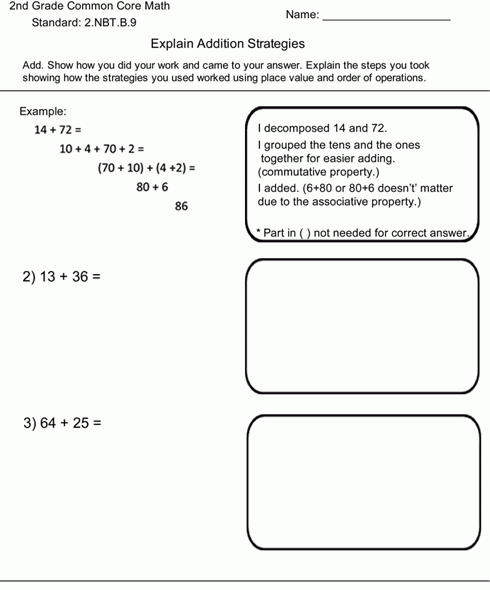Learning to “decompose” or take apart numbers in order to make it easier to add is all about mental math. Most adults do this in their head without thinking about it. For example if you are adding 56 + 36. Many people will quickly see that they can add 4 to the 56 to make 60 and then add the remaining 32 with 60 to make the sum of 92.
These type problems often confuse both students and parents. This worksheet works on these skill a little bit. There are only two problems and there is no regrouping done here, so it’s a good way to start learning this concept.
I would normally teach this skill after teaching about place value, and number forms. Kids should know how to write numbers in expanded form before learning this skill.
Decomposing numbers to subtract is a way for kids to learn how to add by breaking the numbers up into smaller parts. The goal is to make it easier to add or subtract the numbers and to learn what each place is worth.
Here’s an example of how to break up numbers so you can add them: Let’s say we want to add 45 and 37 together. To decompose these numbers, we can break them up into smaller parts that are easier to add:
45 = 40 + 5
37 = 30 + 7
Then, we can add the numbers together using the decomposition:
40 + 30 = 70
5 + 7 = 12
So, the final answer is 70 + 12 = 82.
This method is especially useful for youngsters learning to add bigger numbers because it helps them comprehend the notion of place value and how numbers can be split down into smaller bits that can be put together more easily.


